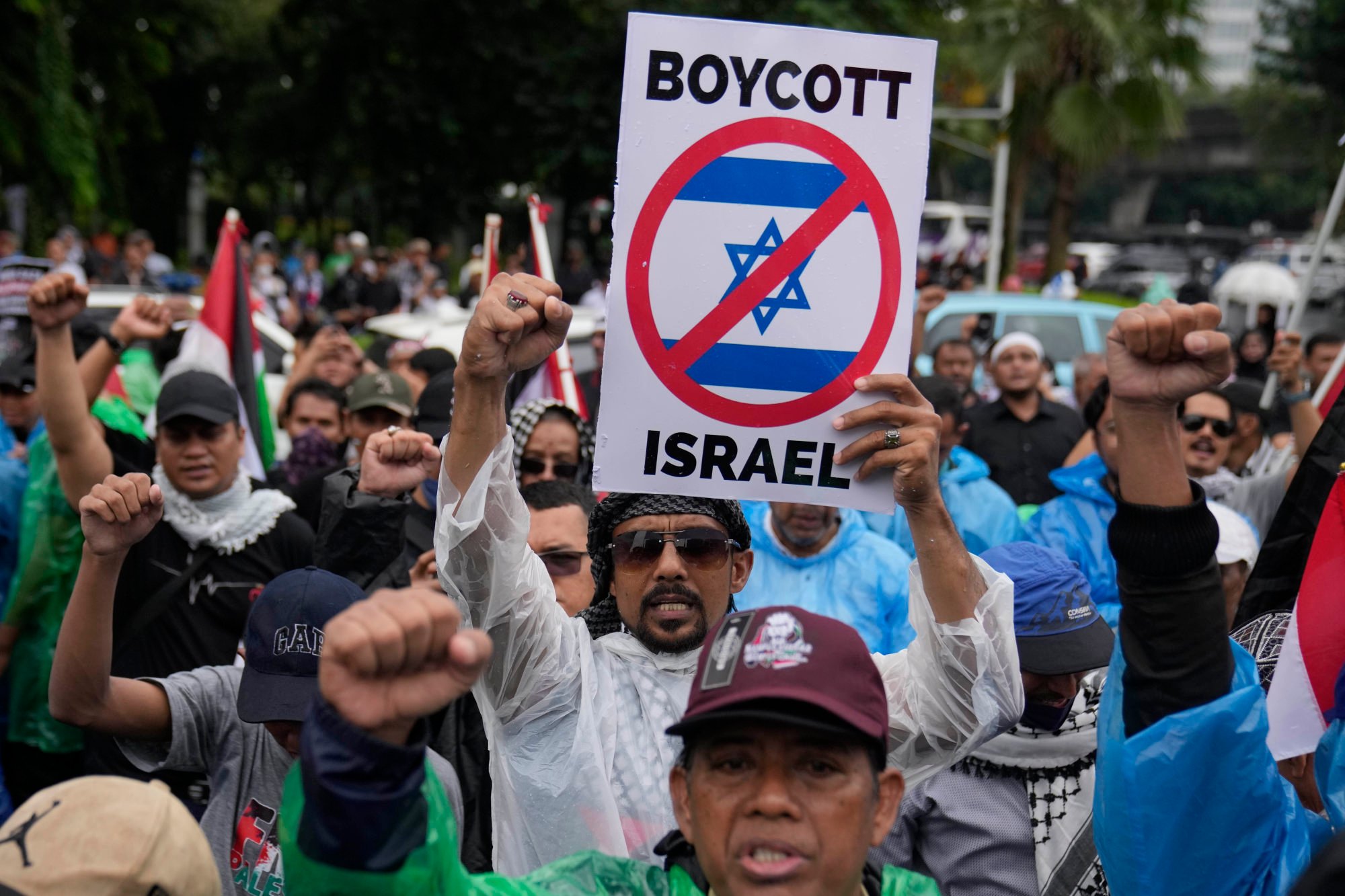To join the OECD, applicants must win the approval of all current member states, including Israel. Successful candidates “demonstrate … like-mindedness in their statements and actions in their relations with the organisation and its members”, according to the organisation’s road map to membership.
Ynet’s report, published on Thursday, cited a letter it said was sent last month by OECD Secretary General Mathias Cormann to Israel’s Foreign Minister Israel Katz, stating that the organisation’s main decision-making body had “officially agreed to the clear and explicit early conditions according to which Indonesia must establish diplomatic relations with all OECD member countries before any decision is made to admit it to the OECD”.
The report further quoted a letter it said Katz had sent to Cormann on Wednesday last week, responding that he “anticipates a positive change” in Indonesia’s “hostile policy” towards Israel so that the two might establish ties. Indonesia’s accession to the OECD would take up to three years, the report claimed, with Israel holding veto power if Jakarta failed to normalise ties.
Indonesia denied the claims, with foreign ministry spokesman Lalu Muhammad Iqbal saying on Thursday: “there are no plans to open diplomatic relations with Israel, especially in the wake of Israel’s atrocities in Gaza.”
“Indonesia’s position has not changed and we remain firmly in support of Palestine’s independence within the framework of a two-state solution. Indonesia will always be consistent and be at the forefront of defending the rights of the Palestinian people.”
Lalu said it would take “quite a long time” for Indonesia to join the OECD, but noted that Jakarta planned to adopt the organisation’s membership road map by next month.

Effects of Israel-Gaza war
Whatever the truth of the reports, Jakarta would likely find it impossible to normalise relations with Israel at the moment given public sentiment amid the bloody Gaza war, in which more than 33,000 Palestinians have reportedly died.
“Especially in the last few months, public sentiment has been very pro-Palestinian, as people are concerned about what is happening in Gaza,” said Indonesian Centre for Middle East Studies’ Sulaiman. “I am sure that normalisation with Israel will not happen in the near future.”
Indonesia’s push to join OECD ‘rich man’s club’ is misguided
Indonesia’s push to join OECD ‘rich man’s club’ is misguided
Israel was likely pursuing diplomatic normalisation with Indonesia to build upon the Abraham Accords, US-mediated agreements it reached with the United Arab Emirates, Bahrain and other Arab countries beginning in 2020, said Siti Mutiah Setiawati, who lectures on Middle Eastern governance and politics at the Gadjah Mada University in Yogyakarta.
‘Brands that fatten them up’: Israeli dates under Muslim boycott in Southeast Asia
‘Brands that fatten them up’: Israeli dates under Muslim boycott in Southeast Asia
Israel and Indonesia have had informal defence engagements for years, Siti said, citing the Indonesian Air Force’s purchase of 30 Skyhawk combat aircraft from its Israeli counterpart between 1979-82 and the training of Indonesian pilots at an airbase in Israel over that same period.
But such informal ties are unlikely to lead to a full diplomatic relationship just because Indonesia aspires to become an OECD member.
“There will be turmoil and waves of dissent within society [if such ties were established,” Siti said.
“Indonesia’s most consistent foreign policy is the Palestinian issue. Since [Indonesian independence leader] Sukarno until Jokowi [as Widodo is popularly known], no president has suggested opening diplomatic relations with Israel.”

